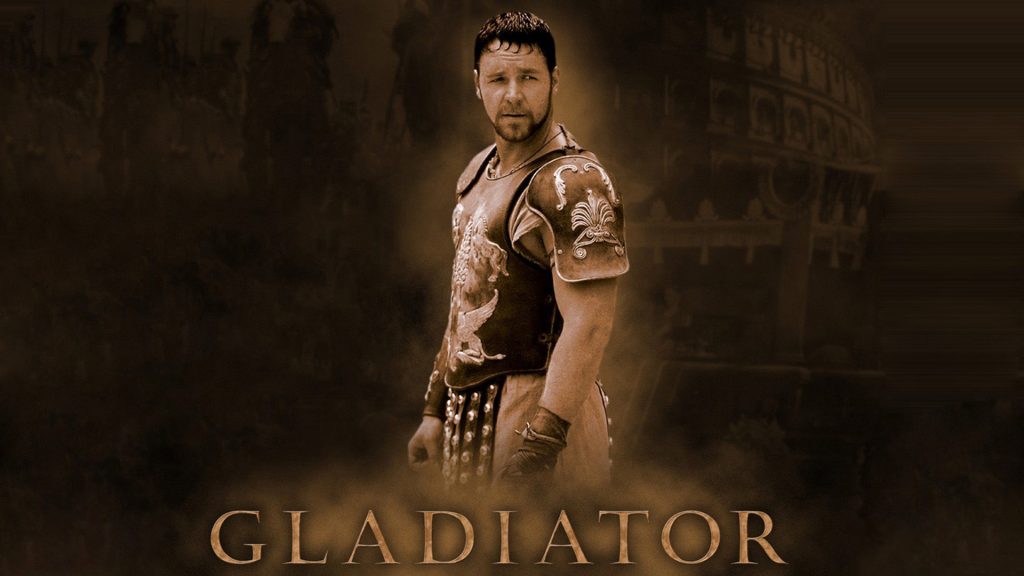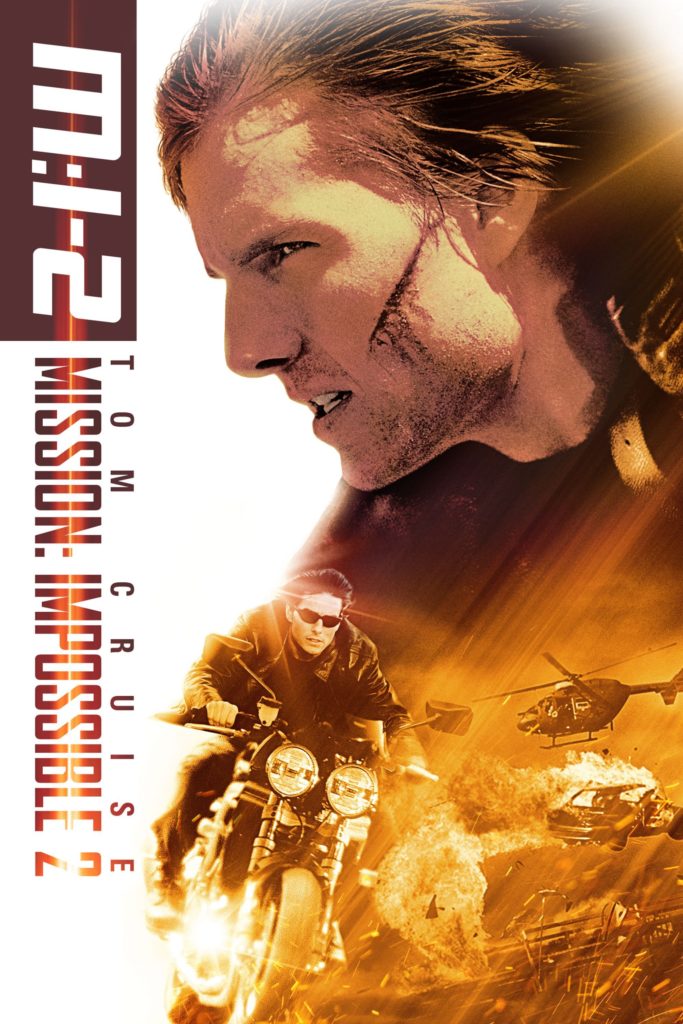2000
The year 2000 saw a powerful ensemble pic from Steven Soderbergh, a sprawling ensemble pic that examined the failures of the War On Drugs by treating all levels equally: the kingpin’s wife, the government’s drug czar, Mexican cops under the thrall of the cartels, the addicts whose addictions are criminalized… it was quite the movie. As close as movies come to The Wire.
So of course it lost. It asked a lot of uncomfortable questions and that’s not the Academy’s bag.
Meanwhile, Ridley Scott had a notion… a way of revisiting what thus far has been my absolute least favourite popular genre. He asked… what if Ben-Hur had more cool action beats instead of making empty statements about Jesus?
(Again: if you never see his face or hear him speak, if people just say “wow he’s great” and don’t say that he’s great for saying “hate is always foolish and love is always wise,” that’s not a sermon, that’s just idolatry.)
(Okay that wasn’t Jesus it was Doctor Who but you get my point.)
And The Oscar Goes To…
Okay I know what you’re thinking, Judah Ben-Hur wasn’t a gladiator, Dan, that was Spartacus, but “Roman noble done dirty by an old friend out for power, has a chance for revenge in the arena” is way more Ben-Hur.
Roman general Maximus Decimus Meridius (Russell Crowe) wants to leave war behind and go home to his family, but Emperor Marcus Aurelius (Richard Harris) wants him to take power after Marcus’ imminent death and restore Rome to a republic. Marcus’ son Commodus (Joaquin Phoenix) hates this plan, kills his father, blames Maximus, and seizes power. Maximus escapes execution, but ends up a gladiator: a popular enough gladiator that he can challenge Commodus’ power from the arena, and possibly get his revenge.
This, like Braveheart, is not a movie concerned at all with historical accuracy. Not in the least, despite using two real emperors. First, gladiators fighting to the death was actually very rare, for the same reason the UFC doesn’t fight to the death, or the World Series doesn’t end with the losing team being stoned to death with baseballs. Gladiators were expensive to acquire and train, and their owners weren’t eager to toss that investment away. Also remember that an ordered fight to the death is what led to Spartacus rebelling in the first place.
Second, Commodus wasn’t a great emperor, no, while he may have fought fewer wars than his father he did push Rome further into dictatorship, but this movie still does him kinda dirty. He co-ruled with Marcus for four years, then was Caesar for 12 years before, yes, fair, being assassinated. He wasn’t a good emperor, but here’s he’s played as cruel and evil as Nero in Quo Vadis or Caligula in The Robe. Phoenix plays him well but he’s playing him to be loathsome, much like Peter Ustinov’s Nero in Vadis. Also his name is “Commodus,” isn’t that enough punishment? (Though the movie pronounces it COMModus to avoid the lowbrow connection.)
The strength of Gladiator is in its fight scenes. Ridley Scott managed some excellent fight sequences, I will give him that. And most of the cast is good: from Joker’s Phoenix giving decent villain; to Wonder Woman’s Connie Nielsen as Commodus’ sister Lucilla, stuck under his thumb; to Shazam’s Djimon Hounsou as a fellow gladiator who fights alongside Maximus; to Oliver’s Bill Sikes, Oliver Reed (in his last movie), as Maximus’ new owner; to, yes, Man of Steel’s Russell Crowe, even though it’s generally agreed he only won an Oscar because the Academy felt bad about not giving him one for The Insider the previous year.
The weakness of Gladiator is, well… everything else. Where Soderbergh’s Traffic was beautifully nuanced (to my decades-old recollection), Gladiator is anything but. Maximus is impossibly Good, Commodus is so cartoonishly Bad they may as well have pronounced it “ComMODus” for full effect. And honestly the third-act failed coup plot was such a narrative cul-de-sac. Maximus, knowing that his old army will fight for him, agrees to work with Lucilla and a senator (Doctor Who’s fourth Master, Derek Jacobi) hoping to unseat Commodus, but Commodus sees through it immediately and it goes nowhere. And honestly it does not fit the “general becomes slave, slave becomes gladiator, gladiator challenges an empire” narrative Commodus sums up for us right before the climax. Tighter focus on “Maximus’ popularity threatens Commodus’ power” would have worked better, and maybe cut twenty minutes off this thing. Which it could have used.
There were a couple of moments where I quite liked the score, but realized that it was because it was basically the Pirates of the Caribbean theme but slower and then I was sad.
It’s… okay. But it serves best as a case study of the Oscars trying to be populist but missing the mark. Sure Gladiator made number two internationally, and fourth domestic, but there was a sleeker, splashier action hit out there.
And Rotten Tomatoes Says: Waaaaaay down at #80, under Oliver! (sensible) but over Gentleman’s Agreement (how dare you).
Which Fellowship Member Are You? Gladiator is Bill the Pony. Shows up near the beginning but honestly is unfit for everything that’s coming.
The Box Office Champ (Domestic)
The best I can say about this is that unlike the most recent, animated version, at least nobody got horny for this particular Grinch.
But Grinch travelled worst of any of the domestic top five, nearly of the whole top ten (as in made the least internationally), and the international champ is from one of my very favourite franchises that I barely get to touch on in this project so if you think I’m spending one second longer than I have to on Jim Carrey in a rubber fursuit–
And Rotten Tomatoes Says: 49% from critics, 56% from audiences, this is a hit we came to regret making so. Let’s get to the good stuff.
Well… when I say “Good…”
Box Office Champ: International
When rogue Impossible Missions Force (IMF) agent Sean Ambrose (Batwoman’s Dougray Scott) crashes a 747 in an attempt to steal an engineered virus and its cure, Ethan Hunt (Tom Cruise, obviously) is dispatched to Australia to find him and stop him, using his thief ex-girlfriend (Thandie Newton) as bait. John Woo-style hijinks ensue.
Mission: Impossible started off as one of the better 90s film adaptations of old 60s TV shows (not the best, that’s probably still The Fugitive, but minimum top three to be sure, there was a steep drop-off between Maverick and The Flintstones). It has, against all probability, only gotten better as a franchise since then, with M:I Fallout being one of the best action movies in recent memory, and the next two are my most anticipated movies in the event society resumes. And the road from “TV adaptation” to “top-tier action franchise” began here…
…with what is very clearly the absolute worst one.
I’m sorry but it is, it absolutely is. John Woo-style martial arts are a weird fit on Ethan, who never used them before or since, the final fight with the villain is very ridiculous, there have been some generic one-time IMF team members but none as bland as Billy Baird the random Australian, and Thandie Newton’s role is not good. She’s a pawn whose literal role is to be an object of desire for both the hero and villain, and the closest she gets to agency is deciding “Well I guess, worst case, I could just kill myself,” and that’s not great.
Also Anthony Hopkins is here for a highly publicized but uncredited cameo as Hunt’s boss, doing two quick scenes for a paycheck, and there’s good and bad to that. I admit “This isn’t Mission: Difficult, Mr. Hunt, it’s Mission: Impossible, difficult should be a walk in the park for you” is a baller line. “To go to bed with a man and lie to him? She’s a woman, she has all the training she needs,” however, is very bad. As Ethan’s Bosses go, he’s under Laurence Fishburne from M:I 3, and Henry Czerny from the original (and coming back for the next one!), somewhere on par with Tom Wilknson’s single-scene cameo as the Secretary in Ghost Protocol? Probably under Alec Baldwin from Fallout? But I digress.
Where M:I 2 is interesting is in how it helped shape what the franchise would be. The first Mission: Impossible was a tense, paranoid espionage thriller, twisted and complex, nuanced and layered, and 100% Brian De Palma. John Woo’s Mission: Impossible is none of that. It is, however, very John Woo… acrobatic martial arts, slo-mo, fire, Hunt firing double pistols, and yes, doves. It is very unlike its predecessor, but that’s what made this franchise work for so long.
Mission: Impossible didn’t have a core aesthetic, like Star Wars or Marvel do. It didn’t repeat the same trick, like Rocky or James Bond. There are only a handful of constants: Tom Cruise as Ethan Hunt, Ving Rhames as Luther Stickell, hyper-realistic rubber masks that can be dramatically pulled off via CG, “Your mission, should you choose to accept it,” and big, impressive, preferably practical stunt sequences. Other than that, Cruise would find directors and let them do their own thing, make their vision of what a Mission: Impossible story was. De Palma made a thriller, Brad Bird brought the frantic “everything goes as wrong as possible” energy of his Pixar work, JJ Abrams made a big-budget episode of Alias, Christopher McQuarrie made masterpieces, and John Woo made a big overdramatic action movie filled with slow motion fight scenes and shootouts, where the villain’s lair is inexplicably infested with doves. Honestly more franchises should lean into this “Here are some toys, do what you like with them” approach.
Second, while Ethan’s character isn’t always consistent in the early movies (time passes, we meet him at different stages of his life, it makes sense he changes, I could do 2000 words on this alone), M:I 2 does establish a key part of who Ethan is and will remain throughout the franchise, partially by using Ambrose to show us who he isn’t. Ethan is Good. Ethan abhors collateral damage. “He’ll undoubtedly engage in some aerobatic insanity before he’ll risk harming a hair on a security guard’s head,” says Ambrose, and most movies in the franchise have at least a moment backing this up. Ethan’s refusal to harm innocents forms my some of my favourite parts of Fallout. Here, Ethan risks his neck bungee jumping through an automated skylight, while Ambrose shoots his way up from the lobby. “He invariably favors misdirection over confrontation,” says Ambrose. Ethan is crafty and measured in his approach, preferring to go unseen if possible. A good Mission: Impossible is part Bond movie, part heist movie. Whereas Ambrose is so in love with “getting his gun off,” in Ethan’s words, that he repeatedly screws up his own plan by rushing for the kill.
Honestly Sean Ambrose would have worked so much better as the villain in Fallout, if they’d spent a movie or two establishing him as Ethan’s stand-in, the perpetually second-place IMF agent reduced to literally being “emergency replacement Ethan,” because of those flaws I just covered. Would have had a bit more punch than “I wonder if the secret villain is this CIA agent we just met who hates Ethan and is the only person in the movie I believe could go six rounds with him in a fight.” Ambrose could have been to Mission: Impossible what Sean Bean’s 006, Alec Trevelyan, was to James Bond, but M:I 2 was no Goldeneye.
When Christopher McQuarrie joined the franchise in Rogue Nation and Fallout, evolving it to its final form, he managed to do the one thing no one had tried, and tie the entire franchise to date together, Fast Five style. This one got left out, the only movie to not get mentioned in some fashion. And not without cause.
(Some people think Luther saying that Ethan has only cared about two women, one being his ex-wife, was meant to refer to Thandie Newton, but come on, he was clearly telling Ilsa Faust, the franchise’s best female character, that she was the second.)
And Rotten Tomatoes Says: 57% from critics but only 42% from audiences, as I say, it is the worst one and quite ridiculous.
Other Events in Film
- This Year in Superheroes: X-Men revives the genre that had laid fallow for, oh… months? Look maybe Warner Bros. backed off of superheroes for a spell after Batman and Robin, but Freddy Krueger stays dead longer than the superhero genre. Fun fact, Dougray Scott was almost Wolverine, but had to back out when the shoot for Eyes Wide Shut ran long and Mission: Impossible 2 was delayed as a result. Hugh Jackman owes Stanley Kubrick’s obsessive perfectionism a debt.
- The Coen Brothers loosely adapt The Odyssey into O Brother Where Art Thou, and the world is better for it.
- Tom Hanks is stranded on an island in Robert Zemeckis’ Cast Away. Production halts so long for Tom Hanks to lose weight that Zemeckis makes an entire other movie, What Lies Beneath, in the meantime. Patrick Willems theorizes that this forced pause to shooting because of an actor’s meat body slowing things is what pushed Zemeckis into motion capture.
- Chicken Run, the claymation movie from Wallace and Gromit creators Aardman Animation, becomes the highest grossing stop motion animated movie.
- Ang Lee gets Oscar love for the Chinese-language martial arts epic Crouching Tiger, Hidden Dragon.
- The Boondock Saints ends up a poster in many college dorms.
- Scream 3 attempts to tie Wes Craven’s meta-comedy horror series up as a Trilogy, confident that nobody involved’s career will hit such a dry spell in 10 years that they’d consider doing a fourth.
- Pitch Black raised Vin Diesel’s profile by introducting his favourite character, night visioned criminal Richard B. Riddick.
- To me, Erin Brockovich, about a secretary at a law firm suing over contaminated water, felt a little Mary Reilly, so I wrote it off completely. No one else did, and so Julia Roberts has an Oscar.
- Final Destination finds a cost-effective horror movie monster: the concept of death itself. Kills caused by complex Rube Goldberg machines never ask for a raise.
- Bob Hope and Bing Crosby’s old buddy comedies get a revival of sort with unlikely duo Kevin Kline and Kenneth Branagh voicing the underrated animated comedy The Road to El Dorado.
- I’ve never seen American Psycho (maybe because there’s that “American + noun” title formula again…) but people surely do keep talking about it.
- Drew Barrymore wills Charlie’s Angels into existence, forcing the world to acknowledge that there’s a director who chooses to be professionally known as simply “McG.”
- Say what you will about Mission: Impossible 2, it surely turned out better than fellow TV adaptation sequel (well, prequel) The Flintstones: Viva Rock Vegas. What a disaster that was.
- Disney experiments with more CG in Dinosaur, which plays like Zack Snyder’s The Land Before Time, and while it made its money is largely ignored as part of Disney canon now, proving the Disney Renaissance is truly over.
- More beloved is Disney’s lighter, zanier, hand drawn The Emperor’s New Groove, whose only sin is to kick off a Disney trend of BIPOC leads being turned into animals to learn a lesson. I am not equipped to unpack that trend but it’s weird that it’s happened three times. That’s weird, right?
- Samuel L. Jackson attempts to revive Shaft, playing the nephew of the original John Shaft despite only being six years younger than Richard Roundtree. I liked it fine but admit it’s weird that the entire plot hinges on ensuring a rich white guy (Christian Bale) is actually tried for that murder he did years ago before hiding in Europe, and then while ensuring that Shaft kills like fifty gang members. There comes a point where putting a bullet in the rich douche’s head feels like a quicker solution than drowning New York in African-American blood to ensure one white guy faces a jury.
- Highlander: Endgame tries to segue the Highlander movies from original star Christopher Lambert to TV series star Adrian Paul… which goes slightly worse than bringing Jean-Claude Van Damme back to Universal Soldier or Cyborg. I mostly note this one for the fact that the trailers made it look much, much dumber, with magic and portals and whatnot, but all of that was just made up exclusively for the trailer, which is such a weird choice. I preferred the version that actually existed, but why pretend a movie is going to be that much weirder than it actually is? That’s so much more of a marketing bait-and-switch than telling us Inglourious Basterds was a light action-comedy all about Brad Pitt’s character killing Nazis instead of the tense drama focussed on Shosanna Dreyfus and Hans Landa it actually was. It’s like if the trailers for Inglourious Basterds claimed Brad Pitt would fight Dracula.
- Speaking of Dracula, I was a big enough fan of Johnny Lee Miller from Trainspotting and Hackers (in recent days, TV’s best modern-day Sherlock Holmes, fight me) that I watched Dracula 2000, in theatres, on purpose.
- The parody genre falls into its final, worst iteration as Shawn Wayans, Marlon Wayans, Jason Friedberg, and Aaron Seltzer (among others) team up to write Scary Movie, leading to at least Friedberg and Seltzer working on minimum three sequels and also the irredeemably bad Epic Movie, Date Movie, Disaster Movie, Meet the Spartans, and Twilight-mocking Vampires Suck. Some of these low-effort turds still get made and sneak onto streaming. If I were God, I’d also have abandoned humanity for making this movie a hit.
Next Page: Showmanship and Wizardry



